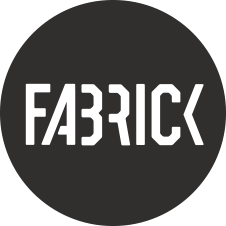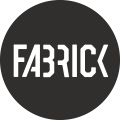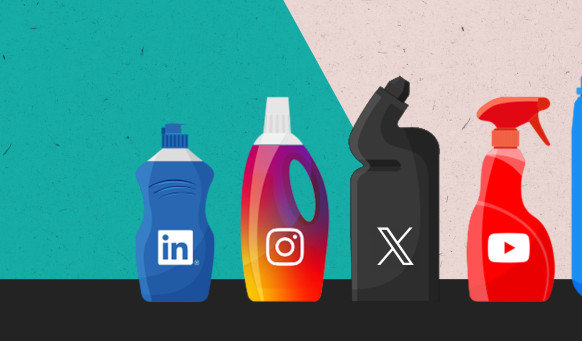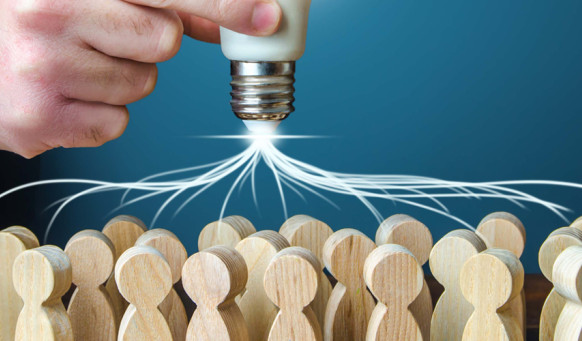Industry Viewpoint
International Women’s Day: a shared view on breaking bias
Today is International Women’s Day (IWD), a day where women’s achievements are celebrated and we remind ourselves what action still needs to be taken to achieve complete equality. Throughout my lifetime, I have seen extensive progression in women’s rights and as a 20-something female who is just starting their career, I have to ask “what can further be done for women in the workplace?” I sat down with some of my colleagues at Fabrick to see what their thoughts were on this question.
The History of IWD
International Women’s Day first started in 1911 and since then vast progress has been made in terms of equality.
Women have been proving their worth and demonstrating their accomplishments for many years, especially in construction. Did you know that in 1869 engineer Emily Warren Roebling assisted the building of the renowned Brooklyn Bridge when the chief engineer fell ill, or that Barbara Res led the construction of the Trump Tower and won the leadership award by Professional Women in Construction?
Each year IWD assigns a theme to help highlight specific action and this year the theme is ‘breaking the bias’, encouraging an inclusive world free of discrimination.
Importance of IWD
So why is IWD important? What can it achieve? It is imperative to educate ourselves on the reasons behind International Women’s Day and the importance of celebrating it. Senior copywriter, Simon Radcliffe, recognises the struggles that some women unfortunately still encounter and believes that “it is absolutely paramount we celebrate the achievements of women because sadly across the world women still face many injustices because of their gender”.
Account Manager, Tracey Lawrence, relates International Women’s Day to her own experiences: “I have two little girl’s myself and it’s important for us to make sure that future generations know about what women have had to go through for us to live our life to the full”.
It is also important to recognise the progress we have made. Darren Laws, Senior Account Manager, notes “we have come a long way from when I entered employment. As with all employment, the one thing that should be recognised is talent, regardless of gender, race or which football team you support”.
Women’s qualities
What about recognising the qualities and thus the value women bring to society? Within construction, a once male-dominated industry, women are helping make positive changes and have the opportunity to help make more. For example, with the construction industry increasingly recognising mental health as a pillar of wellbeing, our Marketing Manager, Laura Garving touches on women’s empathy and how this can positively influence an open discussion about men’s mental health, “I feel women find it easier to show empathy and can be more open about feelings. With statistics telling us that men find it hard to open up about their mental health struggles, perhaps having more women on site would help break down these barriers?”.
Simon adds “women bring skills men don’t naturally possess and by bringing insight and a diversity of ideas to the table, they can drive innovation”.
However, it is also important to not completely group genders together, as Darren states, “people are individual and bring different qualities”. Rob Cursons, Digital Content Manager, sheds further light on this by stating “it’s hard to define specific qualities that are unique to men or women, but what’s important is how we define these qualities. Often, if a woman expresses themselves a certain way, they will be wrongly labelled differently to a man, and often negatively”.
Positive change in the workplace
It is clear to see how workplaces are changing for the better. Melissa Pilford, Digital Content Creator, recognises how workplaces are doing so, “some workplaces are working hard to increase female representation. It is not only right to ensure people of all genders and backgrounds have the chance to have fulfilling careers, but equally a business that fully represents the society it serves will remain better positioned to offer customers the most innovative ideas”.
Laura reflects on her own employment experiences and provides an example of how workplaces can help support their staff. “When I was leaving Balfour Beatty, they were introducing a programme that encouraged people to return to work after taking career breaks. I thought this was especially beneficial for women who have had children as a lot of women lose their confidence when they have a child”.
Ella Acton, Social Media Executive, highlights one way that workplaces can support women and encourage them into the industry: “Go Construct is a brilliant resource that actively encourages women to think about construction as a career. You can find a whole host of women-centric organisations, including WISE (Women in Science, Technology and Engineering), which focuses on the best routes into construction”.
One step further
As recognised, there has been a lot of progression within gender equality over the past couple of years, and so it is important to celebrate these achievements whilst still striving to do better.
Amelia Spence, Senior Account Manager, states that, “there is still very much a stigma that the onsite role in construction is for our male counterparts and this definitely isn’t the case. I do think that this could be quite daunting for anyone looking to enter the industry, however, the narrative from many companies has changed over the last few years and we are making good steps to encourage females into the industry with knowledge and positive experiences shared by women of all ages within the sector”. A more accurate representation of the industry will be beneficial to attract women into the industry as Sian Fulton, Senior Account Manager, states “there are many roles within the construction industry that would most likely suit a female employee much better than a male counterpart.”
Simon suggests how we can make the industry appear more attractive to women, “we should champion the success of the minority role models across the industry. When you celebrate successful women in construction, it will push back against gender stereotypes”.
Andy Gray, Senior Copywriter, also sheds light and states that we need “better promotion from the construction industry, extolling the virtues of a career in the building sector. It would also need to promote the message that the industry is an equal opportunities employer”. Account Executive, Frank, builds on this by drawing on his own observations of the opportunities offered to women, “there needs to be a push to encourage girls that working in construction is a viable and exciting career path. Since joining Fabrick I have seen how we have encouraged our clients to speak to the younger generation about construction and provide them with an accurate representation of the industry. I also think it is important for women that are working in construction to share and showcase their experiences. There are some tradeswomen on TikTok whose videos are really interesting and I’m sure it is inspiring for many young women”.
Fabrick’s responsibility
As a marketing and PR agency representing many clients, there are actions that we can take to raise and promote the standard of equality.
Sian states that “we need to help our clients tell their stories of where women are making an impact and changing their businesses. Lift the lid on stereotypes, the more we talk about women in construction the less of a taboo it will become”.
Tracey believes we should be creating more buzz around women in construction through our industry connections. “We should be working with key trade magazines to highlight women, monthly articles written and addressed by women and creating a number of conferences to celebrate and discuss the topics based on women in construction”.
Melissa adds further insight into how we can attract the younger generation into the industry “by using the tools and platforms that the younger generation uses to highlight the chances accessible to them, showcasing the numerous opportunities available in the industry and displaying possibilities via social media”.
What is important to note is that although we have made immense progress over the years, there is always more to be done. At Fabrick, equality has always been high on our radar and we use our platform to highlight the importance of this.
Support from male colleagues
Although given the title International Women’s Day, our male counterparts are just as important in helping us achieve equality. Laura believes that men can further support us by calling out inequality when they see it and “challenging male colleagues if they believe their female counterparts are not being given the same opportunities and likewise, praising the difference their female colleagues are making to the industry”.
Melissa draws attention to progress that has already been made: “we are increasingly seeing men participate in talks about gender equality and speaking up and confronting derogatory and stereotypical perceptions. Men are also actively showing support by sharing articles, films, and tweets that support gender equality topics”.
At Fabrick, all staff are given continual support, Ella sums up her experience over the past four years, “I have been lucky at Fabrick to work alongside men who are supportive of my challenges”. Amelia adds “I think at Fabrick we have a really nice balance and actually it doesn’t matter if you are male or female you are treated the same. I think treating everyone without discriminating against religion, ethnicity, gender, age, sexual preference is exactly how a successful business should be run. We should be celebrating and supporting our colleagues on their successes and aptitude for their job”.
Final reflections
It is evident that the gender dynamic of the construction industry is truly changing for the better. As a construction marketing company, we need to continue to break the stigma of the construction sector to further attract women, and we can do this by celebrating successes of everyone and promoting women’s roles within the industry. At Fabrick, we always strive to embrace equality, both internally within our team and externally, through promoting the successes and achievements of our fellow clients.



